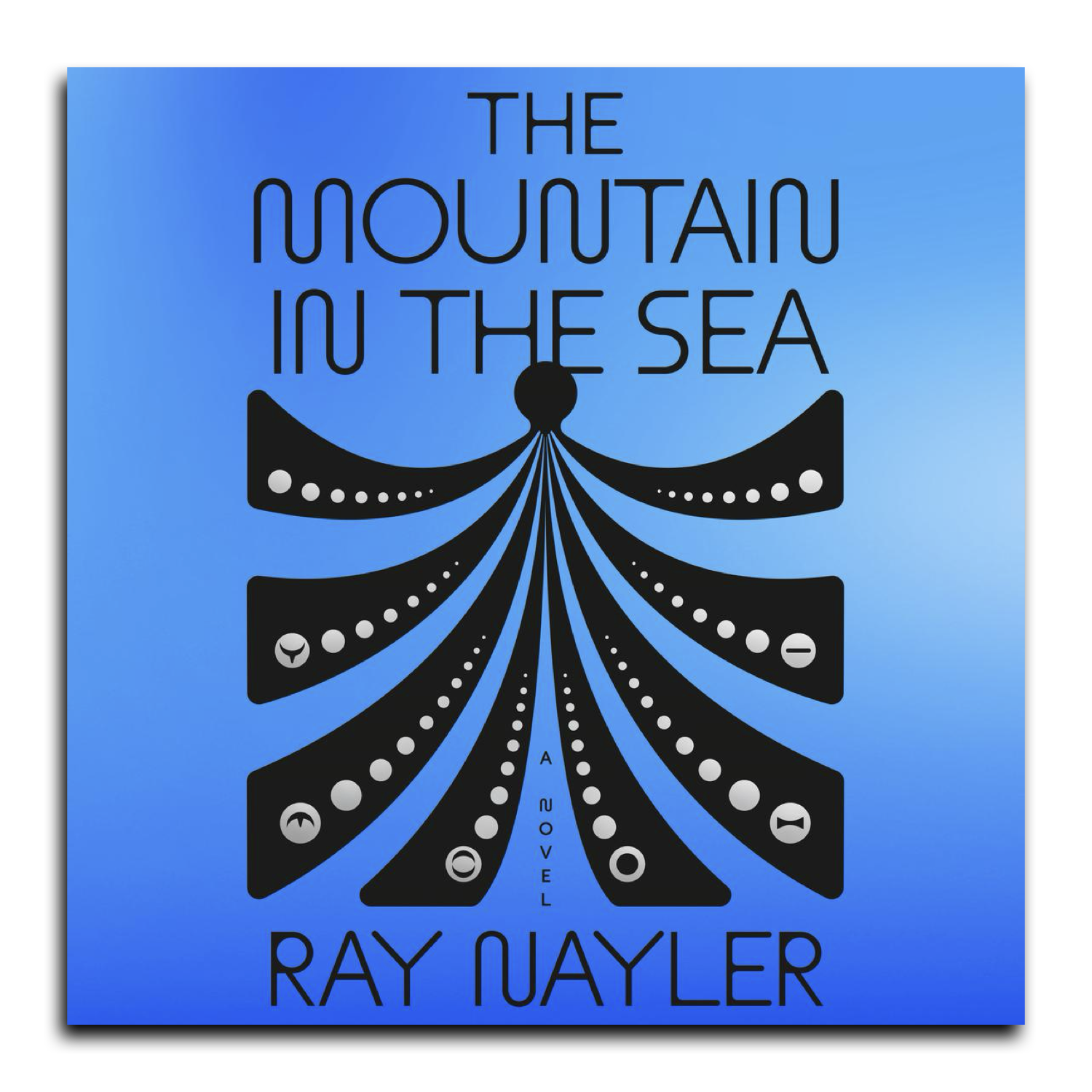The Mountain in the Sea by Ray Nayler
The Mountain in the Sea explores the idea of consciousness in a strangely surreal and deceptively serene near-future novel where humans have discovered intelligent life in an octopus species. Marketed as a thriller, The Mountain in the Sea fails to deliver on this aspect, but thinking more deeply about the concepts Nayler introduces offers better space for understanding and connecting with the novel's core.
With dystopian elements lurking beneath the surface, Nayler plays with philosophical ideas that bolster his explorations of communication, indifference, distortion, and isolation. Though the novel sports a really interesting concept and spends a good deal of time educating the reader, its multiple points of view, some of which are tangential, detract from the story. While not entirely superfluous, those side plots feel like connected short stories, related but without significant impact on the overall plot.
Additionally, the excerpts that precede each chapter, based on books written within this world by two of its characters, start as insightful characterizations but become wearisome over time. They lay too much groundwork beforehand, underscoring the unnecessarily short chapters.
Where the novel really shines is the springboard into deeper thought and understanding in what it means to be human or conscious, and how humans continue to define the ways in which we are separate and unique beings, rather than emphasizing our similarities with our fellow earthlings.
As the research into this hyper-intelligent octopus species begins in earnest, marine biologist Dr. Ha Nguyen joins the efforts of a huge tech corporation, DIANIMA, led by Dr. Mínervudóttir-Chan on the remote, and sealed off, Con Dao Archipelago. The other key figures in her team are a toughened security agent, Altantsetseg, and the world's first (and only) true android, Evrim — created by Mínervudóttir-Chan.
With hints of a first contact story any of us would know well, Nguyen struggles to communicate with the octopuses. Nayler unfolds this part of the plot in a really interesting manner, showing how these intelligent beings have been evolving distinctly and separately alongside humans.
"Communication is not what sets humans apart. All life communicates, and at a level sufficient to its survival. Animal and even plant communications are, in fact, highly sophisticated. But what makes humans different is symbols — letters and words that can be arranged in the self-referential sets we call language."
A new consideration emerges with the discovery of sophisticated communication levels—the octopus species has developed a "written" language. DIANIMA and Mínervudóttir-Chan are intent on exploiting this intelligence for human use. Also, as external threats loom over the archipelago, Nguyen, shedding her scientific layer of indifference, begins to see the multi-layered dangers, including the octopus species itself and its potential responses.
Audiobook, as narrated by Eunice Wong: Wong delivers a brilliant performance, managing multiple characters' perspectives and masterfully portraying an almost too-human android, verging on an audible uncanny valley. Her steady reading voice perfectly matched Nayler's ultra-serene narrative approach.

